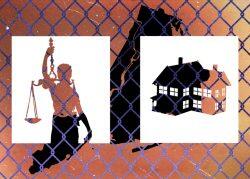It’s 2021, but the fine print in some housing deeds still reflects an ugly time when minority homeownership was either explicitly or implicitly forbidden. Now, states are working to make it easier to eliminate those racist relics.
Racial covenants in housing deeds were not uncommon in the 20th century, with language barring ownership for anyone who wasn’t white. Typically it rejected Black buyers. The covenants have not been legal or enforceable for some time, but still remain tucked away in some deeds, the New York Times reported.
Read more


Over the past three years, eight states have enacted laws to make it easier to eliminate racial covenants from housing deeds. Bills are pending on the matter in another six states, including New York and California, with the latter proposing to eliminate a $95 fee to erase the covenants from individual deeds.
The covenants became more prominent after the Supreme Court eliminated racial zoning laws in 1917, the Times noted. In place of exclusionary zoning, the covenants were utilized locally to allow segregation to continue — supported by the real estate industry and U.S. government.
The National Association of Real Estate Boards created a model clause for deeds in 1927 promoting more racial covenants. Last year, its successor organization, the National Association of Realtors, formally apologized for past racist actions.
The Federal Housing Administration also looked at racial covenants favorably when deciding when to guarantee loans. The Supreme Court banned the enforcement of racial covenants in 1948 and 20 years later the Fair Housing Act made housing discrimination illegal. Nevertheless, their discriminatory effects persisted for years and localities found other ways to segregate housing.
[NYT] — Holden Walter-Warner
